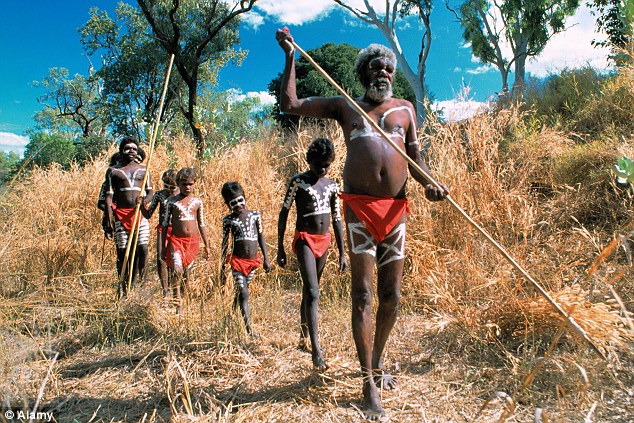
Australia reinstated race laws in the remote Northern Territory region Tuesday after suspending them for three years to pursue a controversial crime crackdown in poor Aboriginal townships.
Indigenous Affairs Minister Jenny Macklin called the suspension, enacted under conservative former prime minister John Howard but amended in parliament late on Monday, a “blight” on Australia’s image.
“This is an important achievement. The legislation removes what has been a blight on Australia?s reputation as the land of a fair go (chance),” Macklin said.
Disabling the legislation allowed Howard to send troops into Outback Aboriginal towns, restrict welfare payments and ban alcohol, under a so-called “intervention” policy condemned as discriminatory by the United Nations.
Macklin said the suspension of race laws left Aborigines, Australia’s original inhabitants with a culture stretching back tens of thousands of years, feeling “hurt, betrayed and less worthy than other Australians”.
“Reinstating the RDA (Racial Discrimination Act) restores dignity and helps Indigenous Australians to take ownership of their lives and to drive change in the Northern Territory,” she said.
Aborigines are believed to have numbered around one million at the time of white settlement, but there are now just 470,000 out of a population of 22 million, and they are Australia’s most disadvantaged minority.
Centre-left Prime Minister Kevin Rudd delivered an historic apology in February 2008 for past mistreatment after British settlers arrived in Sydney Cove in 1788, but refused to reverse the controversial intervention.
UN special rapporteur James Anaya in February condemned the policy as discriminatory and said it stigmatised a group which already suffered disproportionate rates of infant mortality, health problems and suicide.
Anaya said the intervention was at odds with Australia’s human rights obligations and called for the race laws to be reinstated as a matter of priority.
Macklin said Tuesday the intervention’s measures had been overhauled to comply with the Act and reflect “special measures that help indigenous people in the Northern Territory achieve equal human rights”.
Welfare restrictions have also been expanded to non-indigenous people in the Northern Territory, meaning all disadvantaged people would have a portion of their benefits set aside for food, rent and other necessities from July.
The long-term jobless, parents at risk of financial crisis and young people on welfare will be among those who fall under the broad definition for the trial scheme, ahead of a possible national rollout in 2012.
Macklin said a recent survey had found 49 percent of people in townships thought welfare management was a good thing, with 65 percent saying the intervention had helped health and nutrition.
Improvements in policing were seen by 55 percent, but only 32 percent thought violence had decreased, and 24 percent thought there had been a reduction in petrol-sniffing, she said.
In February, two years after the apology, Rudd conceded progress towards improving Aborigines’ lives had been too slow, with wide gulfs remaining in life expectancy, child mortality and health.
The prime minister this week said his government’s efforts thus far had been worthy of a “low-pass” mark.
“I give us about 5.5 out of 10, maybe six,” he said
RELATED ARTICLES
- Sydney Australia Enters Total Lockdown to Over A Few Dozen Cases of 'Delta Variant' Virus
- Australia military Forcibly injecting Aboriginal people Against their Wills
- Disturbing Details Emerge From Inside Australian Quarantine Camps
- Australia: Half-Aborigine Decapitates Her White Mother with Several Knives
- Australian Nurses Must Announce Their ‘White Privilege’ Before Treating Indigenous Patients












Aborigines are such beautiful people.